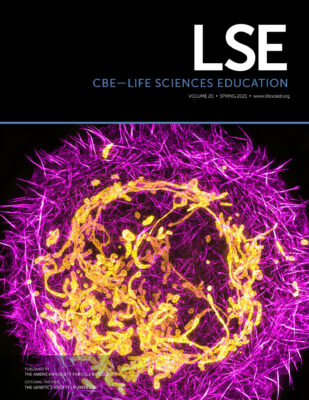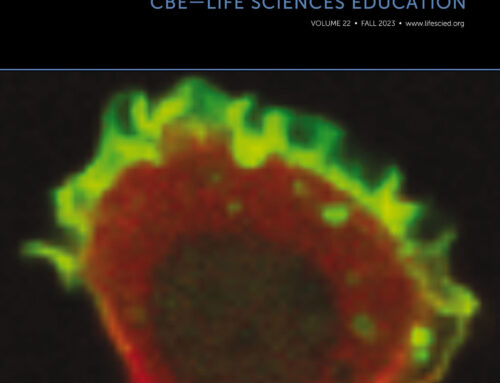Nadia Sellami, Brit Toven-Lindsey, Marc Levis-Fitzgerald, Paul H. Barber, and Tama Hasson
Graham Hatfull, Monitoring Editor
Published Online:18 Feb 2021https://doi.org/10.1187/cbe.20-09-0224
 Abstract
Abstract
Low persistence in science majors and limited participation in high-impact research experiences contribute to the nationwide underrepresentation of minorities in the science workforce, particularly jobs requiring a graduate degree. The Program for Excellence in Education and Research in the Sciences (PEERS) is an academic support program at the University of California, Los Angeles (UCLA) that supports first- and second-year science majors from underrepresented and underserved backgrounds to maximize student success and science, technology, engineering, and mathematics (STEM) persistence. Here, we evaluate the success of PEERS through data from the UCLA registrar, student surveys, and longitudinal tracking of student outcomes. Results show that PEERS students have significantly higher participation rates in undergraduate research, despite PEERS having no formal research component. Importantly, PEERS students were seven times as likely to enroll in PhD programs, and twice as likely to enroll in MD programs compared with propensity-matched controls. Combined results show that increased success of PEERS students in their first 2 years as science majors resulted in improved outcomes later in their undergraduate studies and had tangible impacts on subsequent educational trajectories that will increase participation of underrepresented groups in high-skill STEM careers.




Leave A Comment
You must be logged in to post a comment.